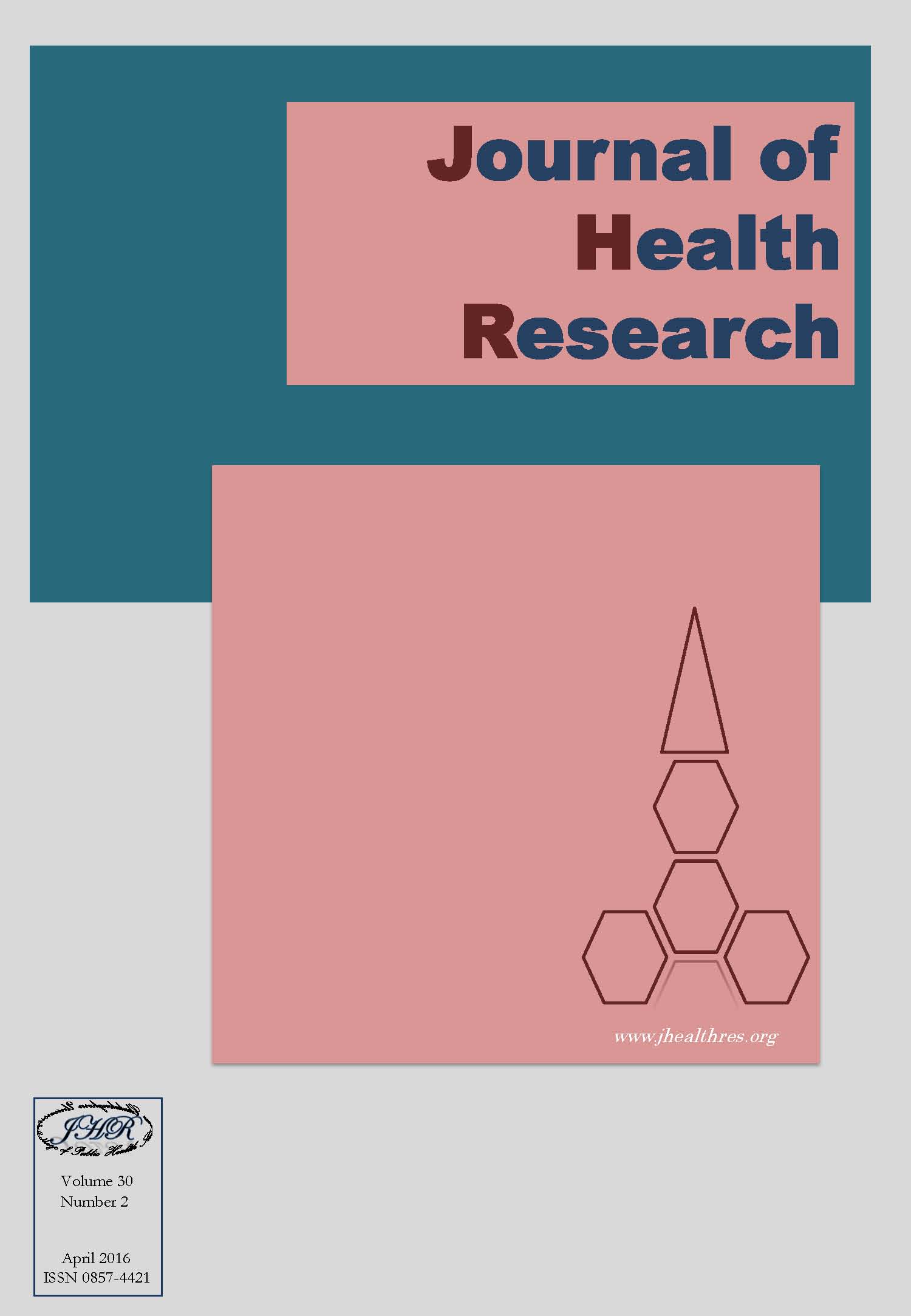Prevalence of poor sleep quality and its correlates among high school students in Bangkok, Thailand
Keywords:
Prevalence, Sleep quality, Poor sleep, Adolescent health, High school student, ThailandAbstract
Background: Sleep plays important roles in physical and mental development among adolescents. Prevalence of poor sleep quality and its correlates among high school students were investigated.
Methods: This study covered 1,080 high school students completing the questionnaire of Pittsburgh Sleep Quality Index (PSQI), socio-demographic characteristics, behavioral factors, and student-related factors. Multivariable logistic regression was used to calculate adjusted odds ratios (OR) and 95% Confidence intervals (CI).
Results: Prevalence of poor sleep quality was 32.0% (95% CI: 29.26, 34.91). Multivariable logistic regression showed that female students (OR=1.49; 95% CI: 1.12, 1.98), weekly allowance (OR=1.44; 95% CI: 1.10, 1.88), school activity ≥6 hrs./week (OR=1.68; 95% CI: 1.09, 2.59), smoking (OR=1.90; 95% CI: 1.28, 2.81) and caffeine consumption >1 cup/day (OR=3.14; 95% CI: 1.47, 6.71) were associated with poor sleep quality.
Conclusions: In such urban and modernized environment as the Bangkok metropolitan area, the prevalence of poor sleep quality among high school students is relatively high. Also, gender, weekly allowance, school activity, smoking and caffeine consumption are associated with poor sleep quality.







